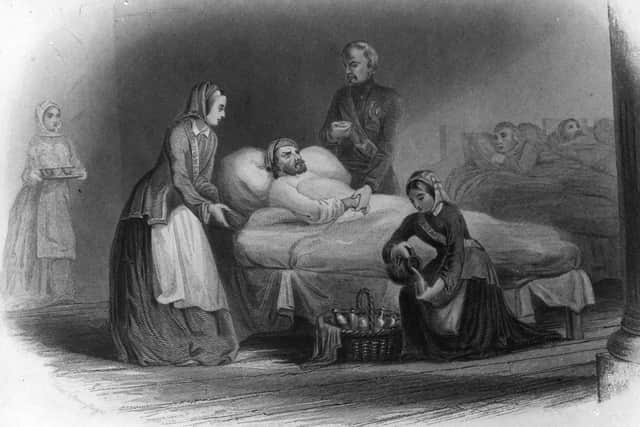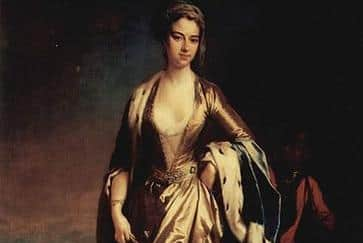Why the work of Sheffield's women medical pioneers - including Florence Nightingale - is still relevant today in our battle with Covid-19
and live on Freeview channel 276
One was the famous ‘lady of the lamp’, groundbreaking nurse Florence Nightingale, and the other was a lady to the manor born, Lady Mary Wortley Montagu.
Florence Nightingale, who was born in 1820, is famed for nursing soldiers during the Crimean War, checking on them in hospital at night with her famous lamp, but she achieved far more than that.
Advertisement
Hide AdAdvertisement
Hide AdShe was born in the city that she was named after but in 1821 her family moved back to Britain.


She spent most of her childhood at at Lea Hurst in Matlock and was a frequent visitor to see her grandmother, Mary Shore, who lived at Tapton Hall – a different building on the same site as the current one - and attended services at Sheffield Cathedral.
Her deep Christian faith led Florence not to go down the route of marriage but to do God’s work. Her family were horrified that she wanted to become a nurse as it was untrained work and not a respectable job in those days.
She learned her skills at a London hospital for ‘gentlewomen’ and began to make changes to how it was run.
Advertisement
Hide AdAdvertisement
Hide AdHer friend Sidney Herbert, minister of war, asked Florence in 1854 to take a team of nurses to Turkey to improve conditions for wounded men, who were dying more in hospital than in battle.


She and 38 volunteer nurses found soldiers lying on dirty floors when beds ran out, with filthy bandages, no clean water and only mouldy bread to eat. There were no proper toilets and the place was rife with rats.
Florence and her team made hygiene their first priority and ensured their patients were also properly fed.
She made sure everyone washed their hands frequently – something has been invaluable during the pandemic.
Advertisement
Hide AdAdvertisement
Hide AdOn her return in 1856, Florence was a national hero. Her campaigning efforts and research led to the establishment of the Army Medical College in Chatham.
She used money she received from the Government for her war service to found the Nightingale School and Home for Nurses in London, transforming nursing into a respected career.
The seven emergency NHS Nightingale hospitals that were opened in response to the pandemic were named after Florence.
An obelisk at Wentworth Castle, Barnsley is dedicated to Lady Mary Wortley Montagu, born in 1689, and her actions on smallpox.
Advertisement
Hide AdAdvertisement
Hide AdHer husband, Edward, of Wortley Hall, Sheffield was ambassador to the Ottoman Empire in Constantinople, now Istanbul in Turkey.
She had lost a brother to smallpox and suffered herself, so was amazed to discover people there were inoculated by placing some infected pus or powdered scabs on a small scratch in the skin to help develop an immune response. The method is called variolation.
Lady Mary had her children variolated and spread the word but met with sometimes violent hostility.
She finally convinced the British royal court and the practice eventually spread.
Advertisement
Hide AdAdvertisement
Hide AdEdward Jenner, who is famous for finding a smallpox cure, made his breakthrough over a century later when he experimented on cowpox and developed the vaccination method. He had been variolated as a boy.